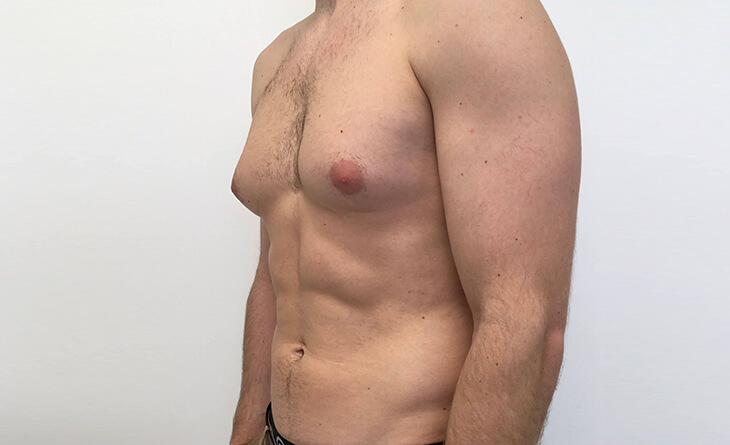Gynecomastia Recurrence: Is It A Real Concern?
Yes, but only in specific situations. For most individuals, gynecomastia surgery in Delhi provides long-term or even permanent relief from the physical and emotional impact of enlarged male breasts. However, in rare cases, the condition can recur if the root causes are not addressed. Factors such as hormonal imbalances, incomplete removal of glandular tissue, use of certain medications, or significant weight gain can all contribute. The encouraging news is that with expert surgical technique, appropriate pre-operative evaluation, and commitment to lifestyle changes, the chances of recurrence are minimal.
What Causes Gynecomastia in the First Place?
Gynecomastia is not simply fat accumulation in the chest. It involves the enlargement of glandular breast tissue in males, typically caused by an imbalance between estrogen and testosterone. While adolescence is a common period when gynecomastia appears due to fluctuating hormones, it can also affect adult men due to medical conditions, certain medications, steroid use, or obesity.
Understanding these triggers is crucial before pursuing gynecomastia treatment. Surgery can correct the physical concern, but unless the hormonal or lifestyle-related causes are identified and managed, recurrence remains a possibility.

Have questions or want to get started? We are ready to help you with a smile!
How Common Is Recurrence After Surgery?
When performed correctly, gynecomastia surgery has a high success rate with very low recurrence. Clinical studies show that recurrence occurs in a small fraction of cases, usually less than 10%. Most often, the reason is not the surgery itself but new hormonal shifts, medication side effects, or the regrowth of residual tissue.
This is why the pre-operative evaluation is so important. A good surgeon will assess not just the visible concern but also your medical history, hormone levels, medication intake, and lifestyle factors to build a tailored treatment plan that minimises future risk.
Who Is More at Risk of Recurrence?
Certain patient groups are more prone to recurrence, even after a technically successful surgery:
- Teenagers undergoing surgery before hormonal maturity
- Men taking anabolic steroids or bodybuilding supplements
- Patients on medications that disrupt hormone levels
- Individuals with chronic conditions like liver or thyroid disorders
- Those with obesity or high fluctuations in weight
If you fall into one of these categories, your plastic surgeon may collaborate with an endocrinologist or request regular post-surgery check-ins to manage long-term health.
Why the Surgical Technique Matters Greatly?
Not all gynecomastia treatment procedures are created equal. In many mild cases, some clinics perform liposuction alone. However, true gynecomastia involves not just fat but also firm, fibrous glandular tissue. If that gland is not properly removed, it may persist or regrow later.
The best approach combines liposuction with glandular excision. An experienced plastic surgeon understands how to remove enough tissue to prevent recurrence while sculpting the chest into a natural and masculine shape. Incomplete or imprecise procedures are one of the most avoidable causes of recurrence.
The Role of Hormones in Long-Term Results
Even after complete removal of the glandular tissue, your body’s hormonal environment can trigger new tissue development if left unchecked. Estrogen dominance, low testosterone, or conditions like hyperthyroidism may stimulate changes in breast tissue even after surgery.
This is why your surgeon may recommend hormone profiling before the procedure. In some cases, referral to a specialist may be necessary. Post-surgery, it is important to avoid over-the-counter testosterone boosters, anabolic steroids, and unregulated supplements. These can destabilise hormone levels and negatively impact your surgical outcome.
Importance of Lifestyle and Maintenance
The work does not end in the operating room. Maintaining your result after gynecomastia surgery involves consistent post-operative care and lifestyle choices. For patients whose condition was influenced by weight, fat cells in the chest can still enlarge with future weight gain. Additionally, fat tissue can produce estrogen, which may contribute to recurrence.
Here are a few essential lifestyle practices:
- Maintain a healthy weight through balanced nutrition
- Engage in regular exercise, including strength training
- Limit alcohol consumption and avoid recreational drugs
- Follow all post-operative instructions, including compression garment use
- Schedule follow-ups to monitor your progress
Taking ownership of your health not only preserves your results but also supports overall wellness.

Can Recurrence Be Treated?
Yes, if recurrence occurs, it can be treated. Revision gynecomastia surgery is an option for those who experience a return of symptoms due to residual gland tissue or new growth. This procedure is typically more complex because of scar tissue, skin elasticity changes, or irregular contours.
A second surgery requires even more precision, so it is essential to consult a plastic surgeon who has experience in revision cases. Often, this process involves a combination of advanced liposuction techniques and tissue excision to restore the desired chest contour.
Emotional Impact of Recurrence
For many men, gynecomastia is not just a cosmetic issue but a deeply personal and emotional one. After finally undergoing surgery and enjoying relief, a recurrence can be emotionally difficult. Patients may feel frustration, embarrassment, or even guilt.
Open communication with your surgeon and having a clear understanding of potential risks helps reduce this emotional burden. Being well-informed, proactive, and supported by an expert medical team makes all the difference in navigating your post-surgery journey.
Choosing the Right Surgeon is Everything
Your choice of surgeon has a direct impact on the outcome and durability of your procedure. A board-certified plastic surgeon brings not only surgical skill but also insight into the psychological and medical aspects of gynecomastia. They are equipped to evaluate hormonal profiles, medication history, lifestyle influences, and aesthetic goals.
A surgeon who listens, educates, and tailors the procedure to your unique condition will offer you the best possible chance at long-lasting results. Patient satisfaction is never just about the day of surgery. It is about preparation, precision, and ongoing care.
Final Thoughts from Dr. Lokesh Handa
If you are exploring gynecomastia treatment or facing concerns about recurrence, do not let confusion or fear delay your decision. At Med Esthetiks, under the expert guidance of Dr. Lokesh Handa, you will receive more than just a procedure. You will receive thoughtful, holistic care tailored to your body and your life.
As a board-certified plastic surgeon with years of experience and a deep commitment to his patients, Dr. Handa ensures that every step, from consultation to post-surgery follow-up, is precise and empowering. Med Esthetiks is not about temporary fixes, but permanent transformations rooted in trust and expertise.

Dr. Lokesh Handa
M.S, M.Ch
Sr Consultant Plastic, Aesthetic and
Hair Transplant Surgeon
Dr. Lokesh Handa, a board-certified plastic surgeon with over 20 years of experience, holds esteemed titles of M.S. and M.Ch. He serves as a Senior Consultant in Plastic, Aesthetic, and Hair Transplant Surgery.
As the Director of Med Esthetiks, his commitment to excellence is evident. Dr. Lokesh Handa is a distinguished member of renowned organizations, including ISAPS (International Society of Aesthetic Plastic Surgeons), APSI (Association of Plastic Surgeons of India), and IAAPS (Indian Association of Aesthetic Plastic Surgeons). With extensive expertise, he blends precision and artistry, offering unparalleled care in the realm of plastic surgery and contributing significantly to the advancement of aesthetic practices.
To book an appointment, call: +91-8800203431 or email: care@medesthetiks.com


